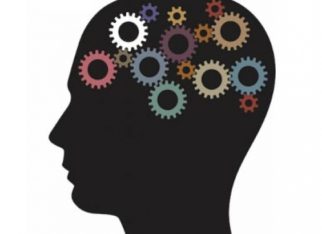In honor of April being known as World Autism Awareness Month, this month’s blog post will focus on the topic of Autism Spectrum Disorder (ASD).
What is Autism?
ASD is considered to be a complex developmental condition that involves challenges with social communication and restricted, repetitive behaviors/interests. The effects of ASD and the severity of the symptoms differ for each individuals; these symptoms change overtime as well.
What are the Symptoms of Autism?
Individuals who have ASD usually have difficulties with social interactions and communication. Oftentimes someone with ASD have challenges engaging in a back-and-forth conversation, a limited ability to share their emotions, difficulties developing/maintaining eye contact, and difficulties understanding social cues. People with ASD may have troubles relating to people, things, and events. Additionally, individuals who have ASD might engage in restricted and repetitive behaviors, interests, or activities. Examples of repetitive behaviors, interests, or activities include: hand-flapping, playing with toys in an uncommon way, speaking in a unique way, needing a predictable routine, having intense interest, and extreme sensory interest (i.e. fascination with light bulbs or disliking loud noises). As previously mentioned, the above symptoms vary from person-to-person in terms of number of challenges and severity of the symptoms/behaviors.
How to Diagnose and Treat Autism?
Early diagnosis and treatment are important to reduce symptoms of ASD and to improve the individual’s overall quality of life. There is no medical test for ASD, therefore, Autism is diagnosed by trained professionals who observe the behaviors of the individual in relation to the person’s developmental age. Autism can now be diagnosed by age 2 however, it is more commonly diagnosed after 4 years of age. The Center of Disease Control estimates that one in 59 children have ASD symptoms. There are a number of screening tools and early-intervention methods that are available for caregivers of individuals who believe their adolescent or child may have ASD. These screening tools in addition to other resources can be found on www.autismspeaks.org . This website offers screening tools and resources for teenagers and adults as well.
Treatment of ASD for both children and adults should be tailored to address the person’s specific needs. Oftentimes treatment involves behavioral approaches (such as Applied Behavior Analysis) that helps increase language and communication and decrease problem behaviors. Treatment may include medication, speech therapy, and occupational therapy as well. Research has shown that these types of treatment help improve symptoms and quality of life.
Author: Julia Gomes, M.A., M.S.
References:
https://www.psychiatry.org/patients-families/autism/what-is-autism-spectrum-disorder
https://www.autismspeaks.org/



